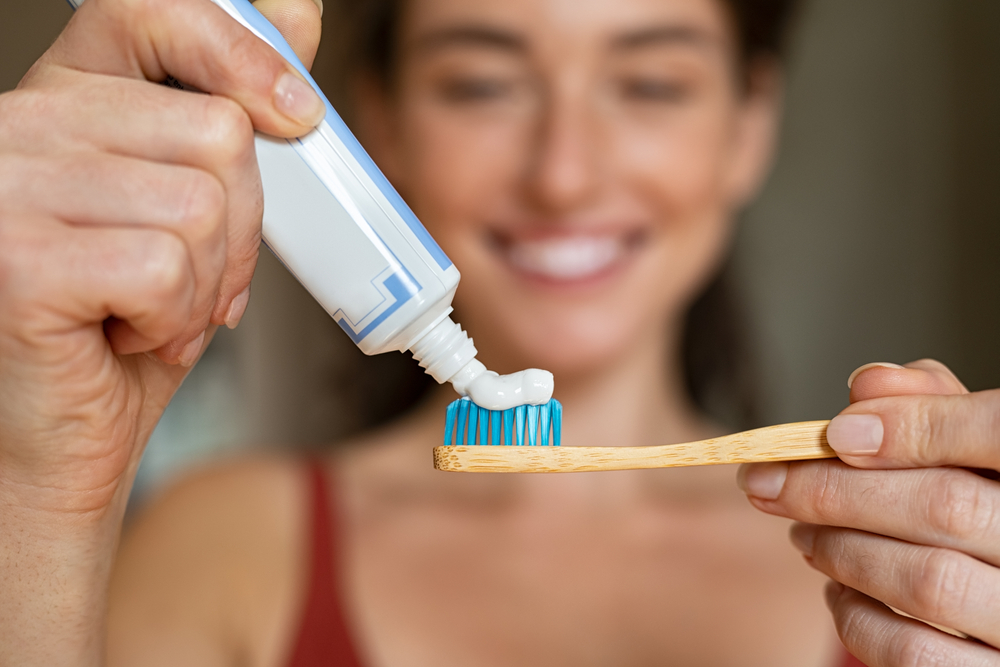Replace Your Lost Teeth with Dental Implants!
Are you suffering from tooth loss and don’t want to deal with the hassles of dentures? Dental implants may be right for you! Our West Sayville dentist specializes in dental implants and has helped countless patients restore their smiles and bring back their self-confidence. With over 40 years of experience, you can trust Dr. Sigismondi to help you achieve your oral health goals.
Ready to get started? Contact our dental team today at 631-563-1583.

Dental Implant Maintenance
One of the most convenient benefits for implant patients is that dental implants don’t require any special care. As a tooth replacement that looks, acts, and feels just like natural teeth, patients can achieve a lifetime of oral health success with dental implant treatment.
Our Long Island dentist goes over the basics of dental implant maintenance, ensuring they last you as long as possible!
Good Oral Hygiene Habits
Maintaining a good oral hygiene routine is essential for the health and longevity of your dental implants. Oral hygiene habits to follow include brushing your teeth twice a day, flossing daily, and using an antiseptic mouthwash to kill bacteria and freshen your breath. If you ever have questions about dental hygiene habits, feel free to ask our dentist.
Brushing Your Teeth
One of the most effective ways to maintain the condition of dental implants is by brushing your teeth twice a day. When brushing your teeth, use a soft-bristled toothbrush and toothpaste specifically formulated for implants. Make sure to brush all surfaces of your teeth, including the tops, sides, chewing surfaces, and gum lines.
Flossing
Flossing is crucial for removing plaque and food particles from between your natural teeth and around your dental implants. You can use a floss threader or special dental floss that’s designed for dental implants to make flossing around the implant sites easier.
One of the best methods for flossing is using a Waterpik. It can reach difficult spots and keep the gum line clean. If you’ve always struggled with traditional flossing, a water flosser may change your habits!

Rinsing Your Mouth
Rinsing your mouth between meals is an essential step in maintaining the health of your dental implants. It helps remove food particles and bacteria that may be left behind after eating, which can lead to plaque and tartar buildup around the implant post.
Use an antiseptic mouthwash specifically formulated for dental implants. Swish the mouthwash around your mouth for 30 seconds to a minute, reaching all areas of your mouth, including the implant site. Spit the mouthwash out and rinse your mouth with water.
Quit Smoking
If you smoke, quitting can significantly improve the long-term success of your dental implants. Smoking increases the risk of implant failure and complications such as gum disease and bone loss. To avoid these complications, our dentist may recommend kicking the habit of smoking or tobacco use.
Monitor Changes
Pay attention to any changes in the way your implants feel or function. If you experience pain, swelling, bleeding, or loosening of the implant, contact our dentist immediately for evaluation and treatment.
Routine Visits to Our Sayville Dentist
Regular dental checkups and cleanings are essential for maintaining excellent oral health and keeping your dental implants in pristine condition. Our dentist will examine your implants to check for any signs of wear or damage and clean and polish them to remove plaque and tartar buildup.

Problems That Can Occur Without Proper Dental Implant Maintenance
Implant problems can occur despite regular care and maintenance. Here are some common problems and how to address them:
- Peri-implantitis: A type of gum disease that affects the tissue around the implant, leading to inflammation and bone loss. Symptoms include bleeding, swelling, and redness around the implant. To treat peri-implantitis, our dentist may recommend antibiotics, deep cleaning procedures, or even surgery in severe cases.
- Loose implant: If the implant-supported crown, bridge, or denture isn’t properly maintained, it may become loose or unstable over time, affecting functionality and aesthetics.
- Broken restoration: The crown, bridge, or denture that’s attached to the implant may become loose, crack, or break over time. This can be due to normal wear and tear or physical trauma. Depending on the extent of the damage, your dentist may recommend a repair or replacement.
- Gum recession: Gum recession can occur around the implant, exposing the implant to bacteria and leading to implant failure. Our dentist may recommend gum grafting surgery to address the recession and prevent further damage.
- Infection: Failure to keep the implant area clean can lead to bacterial infections, which may manifest as swelling, pain, and pus discharge around the implant site.
- Bone Loss: If bacteria accumulate around the implant due to inadequate implant maintenance, it can lead to bone loss around the implant site (osteolysis), compromising the stability and longevity of the implant.
If you’re dealing with any problems with your dental implant, contact our dentist in West Sayville by calling 631-563-1583.
Frequently Asked Questions
Most dentists recommend using a toothbrush and toothpaste specifically formulated for dental implants, as they’re designed to clean and protect the implant post and surrounding tissue without causing damage. Your dentist will recommend the best toothbrush and toothpaste for your specific case.
Yes, plaque can grow on implants just like it can on natural teeth. Plaque is a sticky film of bacteria that forms on teeth and gums, and, if not removed through proper oral hygiene practices, can lead to gum disease and other oral health issues.
Similarly, plaque can accumulate on the surface of dental implants, leading to inflammation and potential implant failure. This condition is known as peri-implantitis and can cause bone loss around the implant.
It’s generally recommended to use toothpaste that’s low in abrasive particles, as these can scratch the surface of the implant or the restoration attached to it. Look for toothpaste that has a low RDA (Relative Dentin Abrasivity) value, ideally under 70.
